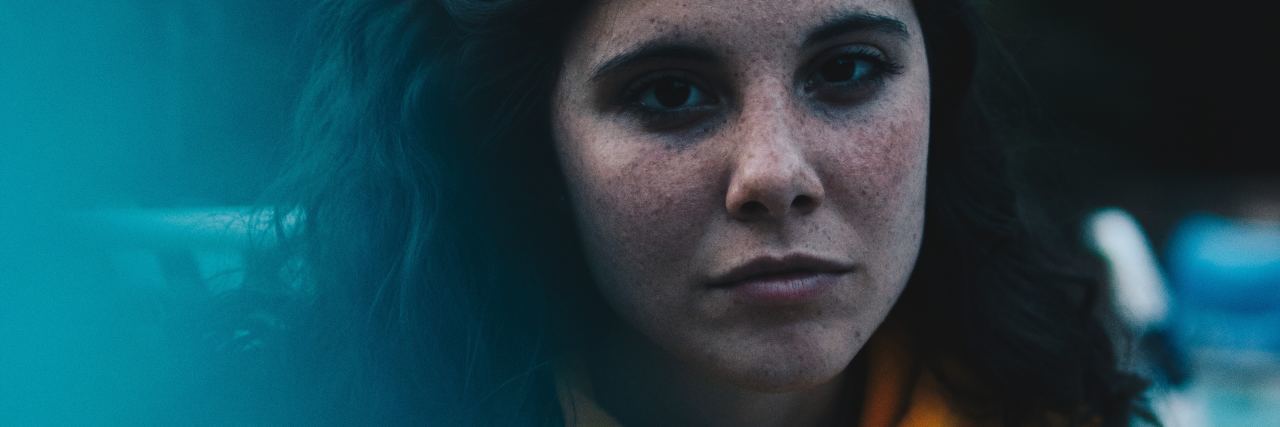Why My College Needs to Do Better at Discussing Disability and Chronic Illness Stereotypes
I am frustrated.
I applied for a job at my college and, after an application and three interviews with different members of the college’s staff and faculty, I got the job. I’m working in ResLife. It is my job to help a pre-assigned group of freshmen to find their academic and social place in the college. I was way excited to make a difference in their lives.
Training seemed to start off really well. My supervisor asked us to let her know two weeks before coming to campus if we had any health concerns. She wanted to know before training and before the all-too-exciting retreat. I was so pleased that my new supervisor asked that question and gave me the platform to explain what would make this experience productive and doable for me. I explained that hearing was rough for me, and physically demanding stuff was a no-no — in far more eloquent and explanatory words, of course. She thanked me for telling her and said my disability would not be a problem.
Training officially started at the retreat. We played games and had dance breaks. Don’t get me wrong, they should have had games and dance breaks! They are fun and can break the tension from some of the more serious exercises. But here lies the problem: we didn’t really have a choice to play the games or to dance. Officially, we did, but the supervisors were watching us and taking note of who sat on the side. If I wanted to succeed, I had to participate. But if I participated in the way they asked, I would either cause my oxygen levels to fall or my heart rate to skyrocket. I made the choice to join in, and my body paid for that choice. The supervisors wouldn’t have known that I badly wanted to participate, but I wasn’t given the option to do it safely.
While we were at the retreat, my hearing gave me problems too. We did a more serious activity in which we asked our partner (and then answered ourselves) a series of questions. But there were over 80 pairings in this room, meaning 80 people were talking at once. I never heard a single one of my partners’ answers; if I was lucky, I lipread them correctly. When I was asked, “When were you a minority?” I almost laughed. “Now.”
When the retreat ended, we learned about the different services campus had to offer. My supervisors brought in teams from so many of the offices in the college: Student and Family Care, the Wellness Center, Title IX office, LGBTQIA+ office, and more. We were given sensitivity training about people of different races, religions, languages and socioeconomic standings. We learned how to discuss and prevent sexual harassment and suicide. All of this is great. But when we talked about avoiding phrases like “I don’t see color,” or “You’re in America, speak English,” why didn’t we also learn to avoid “You don’t look sick,” or “At least it’s not cancer?” For that matter, why did we not learn a single thing about the disability office, other than it exists? Why didn’t we learn how to talk about acute, terminal or chronic illness and disability?
I spoke with most of the people who presented information — people who had the opportunity to teach us about the stereotypes and true culture around disability. I explained “I wish you had said [this]” and false-excitedly shared “You should look [this] up, you’d find it interesting!”
But it shouldn’t be my job to educate people, whose sole job is to be inclusive, that they need to include people who don’t have “normal” health experiences. That responsibility should not fall on me, a student and employee-in-training.
I wish I said some final thought to tag to this article. But the truth is, I’m too disappointed and frustrated to have an eloquent ending. Not only did I experience ableism from training, but we didn’t take the time to learn more about ableism. I applaud that my college focused on mental health — that is a great step — but we as a college need to do better. We need our workplaces, schools and hangouts to do better. So often, people in minorities — be it racial and sexual differences or differences in ability — don’t have the platform to create needed change. These minorities need the majority’s help to do that. In my college, that means we need to seek out and listen to those of us who are ill and/or disabled. And we need to teach people how to interact with those people. I hope my new position is another small step to making things better.
Photo by Curtis Potvin on Unsplash

